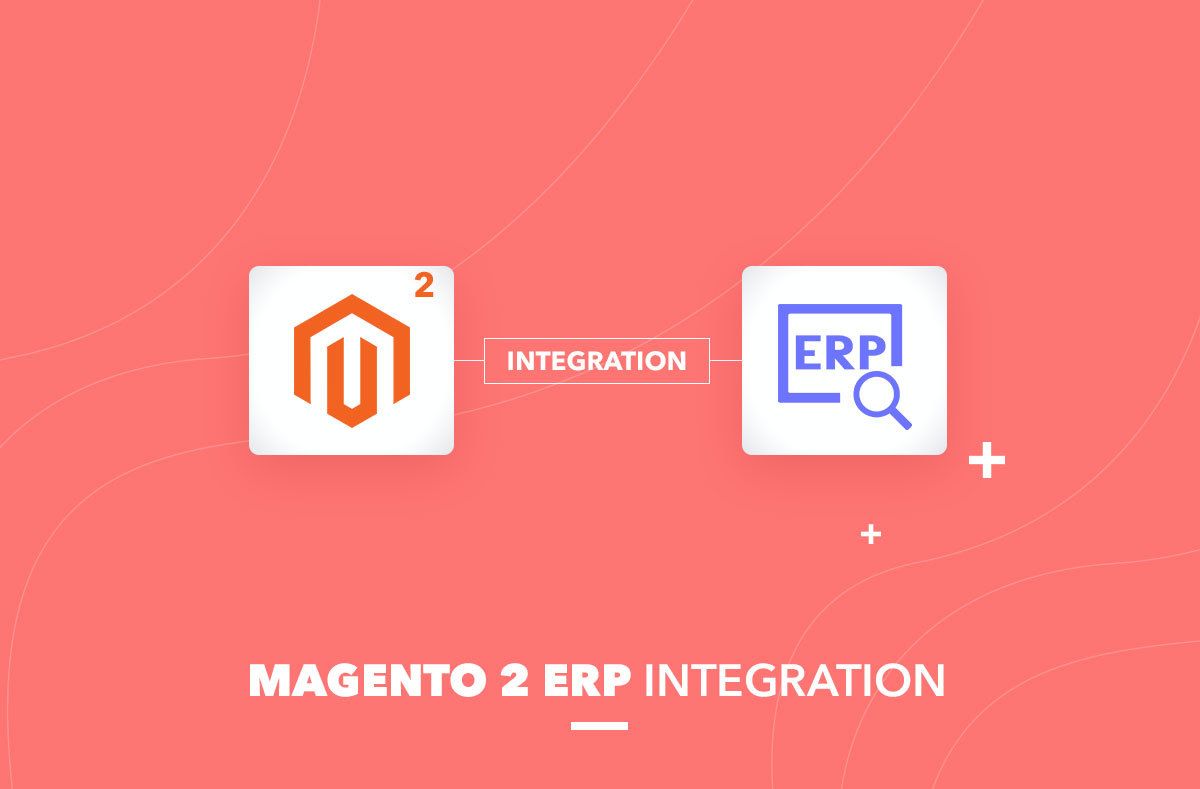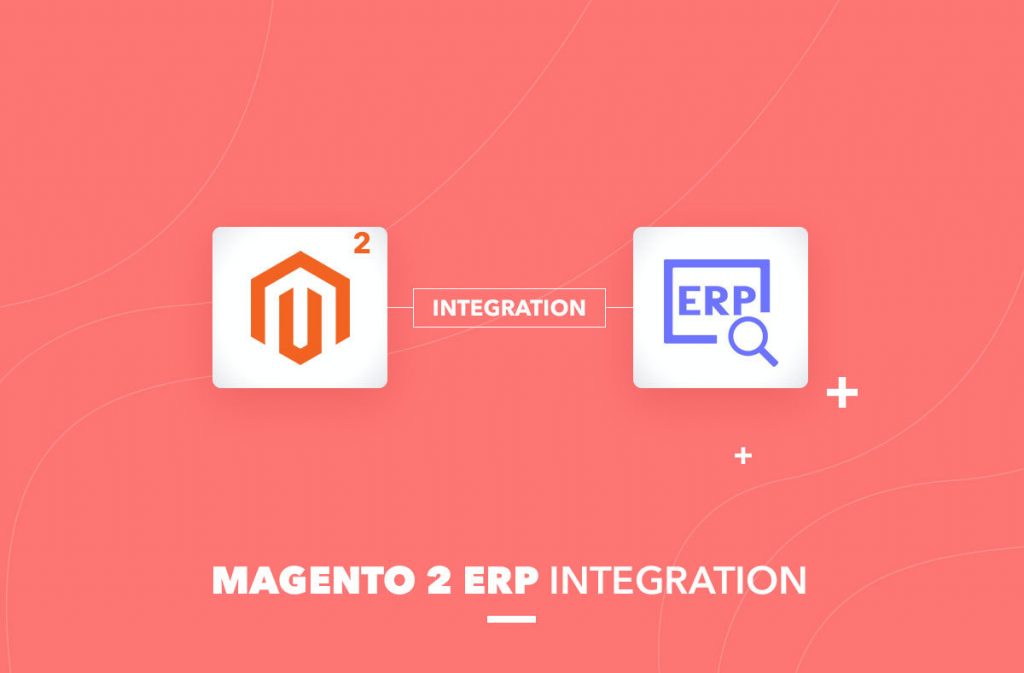
Generally, ERP is an Enterprise resource planning (ERP) feature that allows the customer to deliver an integrated suite of business operations. When it comes to ERP as software, it is used to manage everyday business processes, such as supply chain management, human resources, payroll, and many others. Magento ERP is a Magento extension that works to provide all those features for Magento users. For example, integration with Magento ERP facilitates inventory management, improves the business flow, and makes processing orders easier. Thus, the Magento ERP extension helps to manage stock, purchases, and process orders.
Magento – Your Perfect ERP Solution
As soon as eCommerce stores need to process loads of data on the daily basis, the use of the ERP tool is a great solution to improve the process of data integration from inventory, orders, and supply chain. With the flawless integration of ERP Magento, the use of the extension is definitely worth it when you have a large inventory and need to manage customer services, marketing, accounting, and orders. At SOFTLOFT, we offer seamless integration with Magento ERP to the customers that run eCommerce websites with Magento backend.

Magento ERP is a Step Forward to Automation
So, the ERP extension is the software that helps your business systems to exchange their data. In other words, business processes are getting more manageable with ERP. Practically, the choice of an ERP is going to depend on how big your business is and what backend system you are using for your store. In other words, when there are too many manual eCommerce processes when managing your store, this limits the potential of your store to grow. You do need some automation to make the business more sustainable, and Magento ERP is all about it.
Types of Magento ERP Integration
Magento integration is a method that connects ERP with the business. When it comes to Magento ERP integration, there are several types to integrate Magento ERP, namely Point-to-Point Magento Integration, Custom in-house Magento integration, Multichannel Magento 2 ERP integration.
Point to point Magento ERP integration
When the point-to-point Magento ERP integration is used, the data are transferred from system A to system B. It is the simplest and the first to think about a way to integrate Magento ERP. The point-to-point integration is a great choice for those who are not aware of the programming skills. The point-to-point Magento ERP integration can be deployed in minutes with minimal configuration.
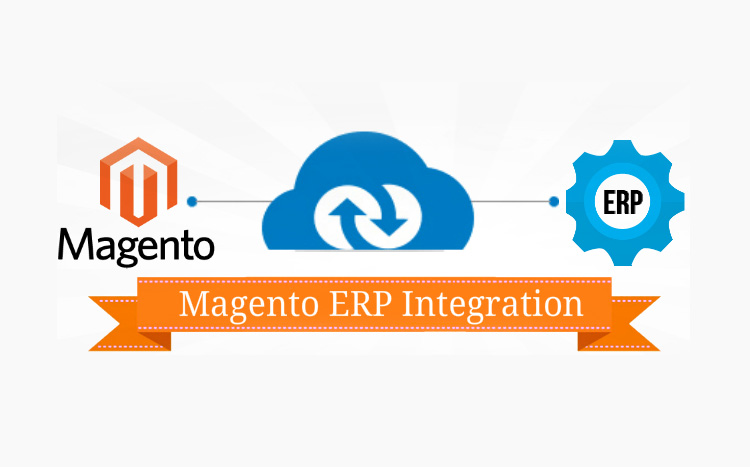
Practically, the point-to-point integration means that the data from one process are connected to those of another process. For example, in order to integrate the fulfillment process and the courier service, there is a need to connect Magento ERP. Point to point integrations might be performed for up to 20 integrations but the increased number of connections boosts the load for the IT infrastructure and creates the risk for security issues.
Therefore, the point-to-point integration is the best choice for the startups that are developing and increasing the scope of the online store. On the other hand, when you have a developed high-load business, you might want to choose a flexible Magento integration scheme.
Custom In-house Magento integration
As it’s evident from the name, custom in-house Magento ERP integration is based on the idea to develop ERP for a specific customer. For this purpose, integration is made by the software development team that is going to make the changes that need to be done in the future as well. At this point, custom in-house Magento ERP integration is time-consuming and needs significant effort. Therefore, currently, custom in-house Magento ERP integration is replaced by more modern and flexible tools.
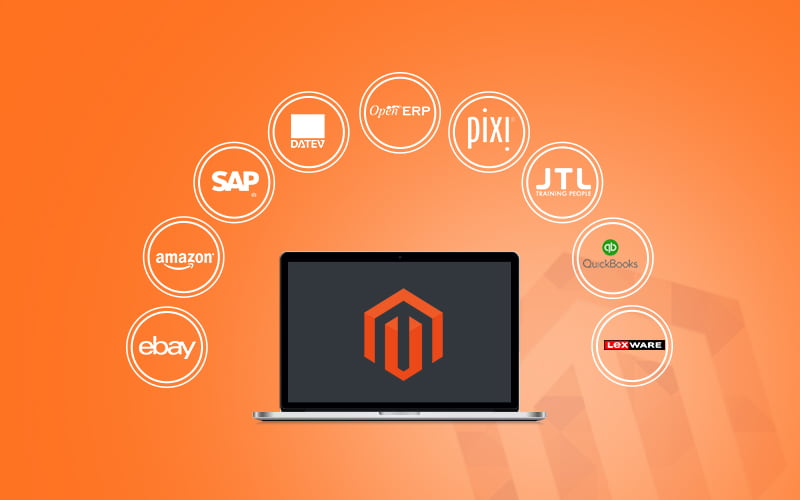
Multichannel Magento 2 ERP integration
The idea of the multichannel Magento ERP integration is to integrate both channels, online and offline to the one selling point. Without this kind of integration, the customer might face the issues of overselling the inventory and wrong shipping of orders. As a result, the idea of multichannel Magento 2 ERP integration is to gather data from both channels, online and offline, and combine them both together in one easy-flow and easy-managed business. With multichannel Magento 2 ERP integration, there are a variety of processes to be integrated, including automatic management of customer accounts, automatic sales and inventory updates, and pricing & product updates.
Magento ERP Integration Step by Step
For a successful Magento ERP integration, follow this step-by-step guide:
- Make sure you understand the flow of orders and processes in Magento and set everything correctly. To do that, study the way that attributes, attribute sets, product types, and data are used and the ways to integrate them with the ERP platform. Ideally, think about the data workflow you aim to have with your data.
- Consider the use of multiple inventory management configuration options. They are very handy when it comes to importing several data channels into a single one.
- The entire integration process needs to be automated with the aim to avoid manual order entry and tracking number distribution. That said, look for the picklist generation process to fulfill and simplify the process.
- Choose the way for Magento and Magento ERP to interact, choosing from point-to-point, custom-built, or by a multichannel integration platform that is all discussed in paragraphs above.
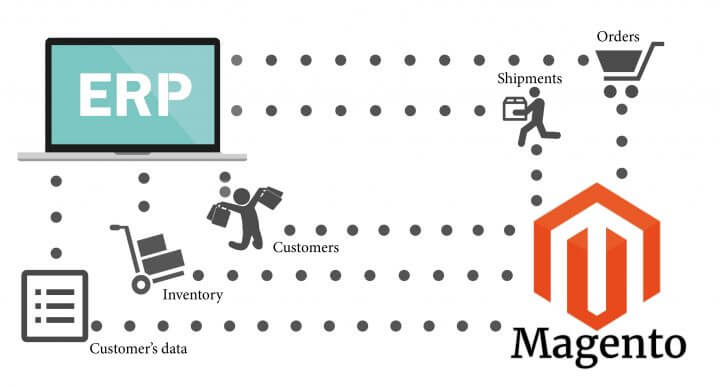
Best ERP for Magento
Certainly, when it comes to choosing and integrating the actual ERP, you will need to choose a specific one, as soon as there are plenty available on the market. Practically, there are several most recommended ones that are often chosen by the customers. The list includes but is not limited to:
1. Odoo
Odoo claims to be a user-friendly software for business that offers centralized, online, and accessible integration with various data for easy integration and access from any device.
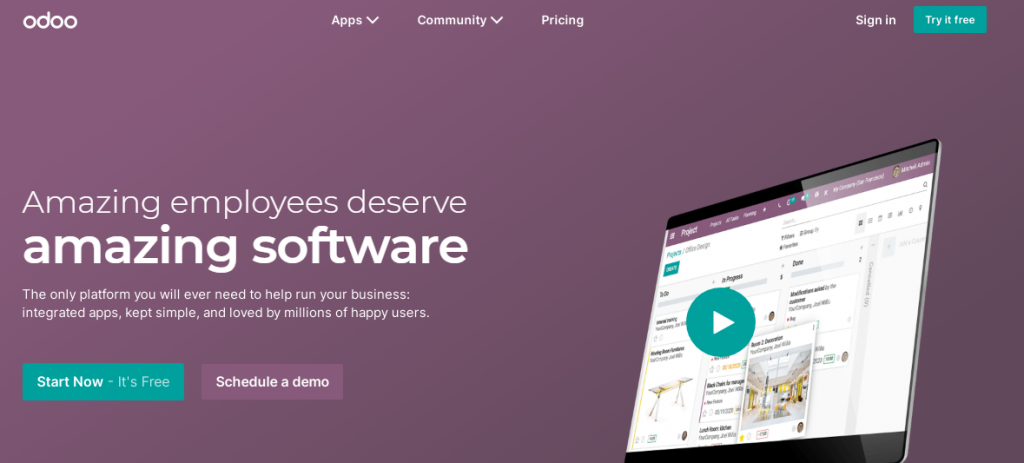
2. Boost My Shop
Boost My Shop is the software that offers simple and automated eCommerce management.
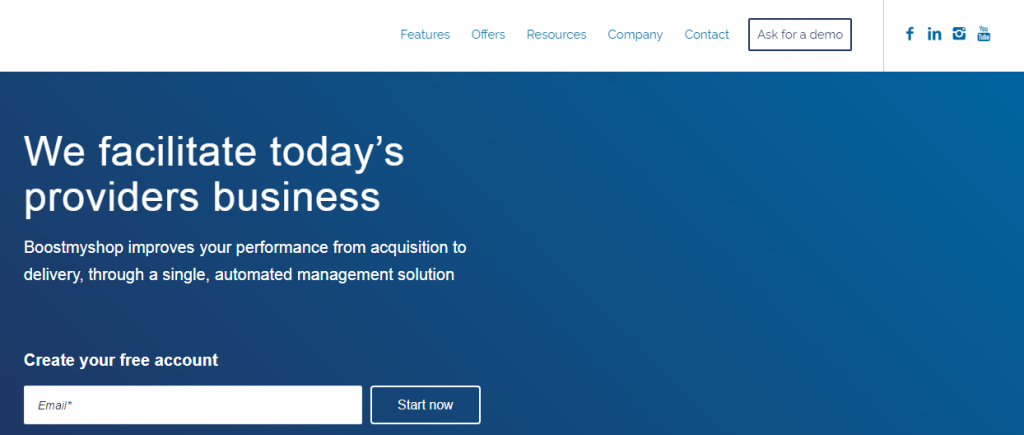
3. SYSPRO ERP
SYSPRO is the software that aims to provide automation and web-based UI for universal access to the online store 24/7 on all devices. The service also offers flexibility to deploy on-premise, in the cloud, or both.
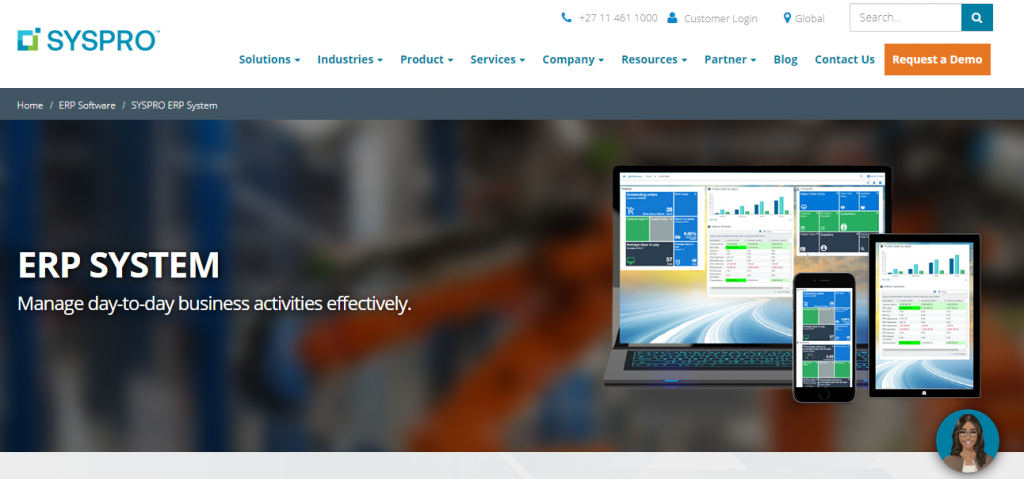
4. Khaos Control
Khaos Control offers to control all the functions of your online store in one place.
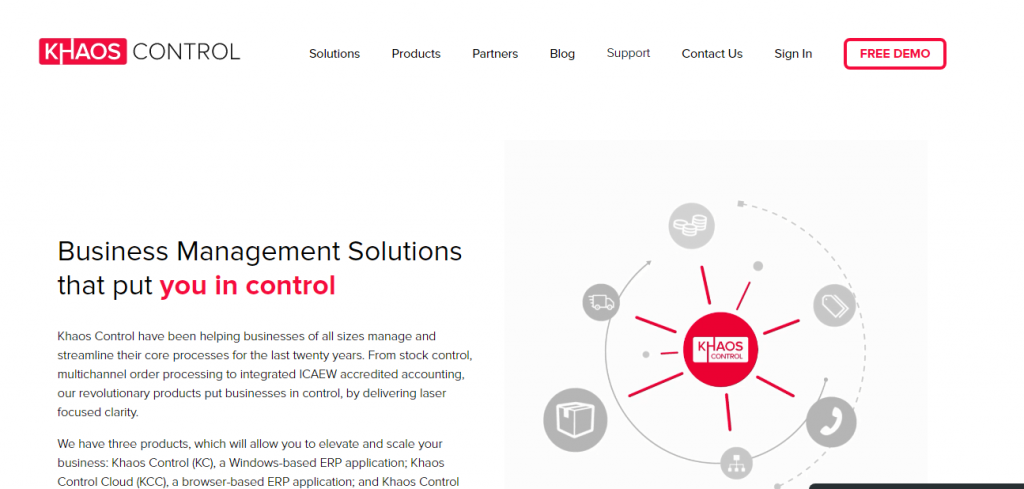
5. Infor
Infor offers services for the integration of agile, secure, and data-driven systems in cloud-based digital businesses.
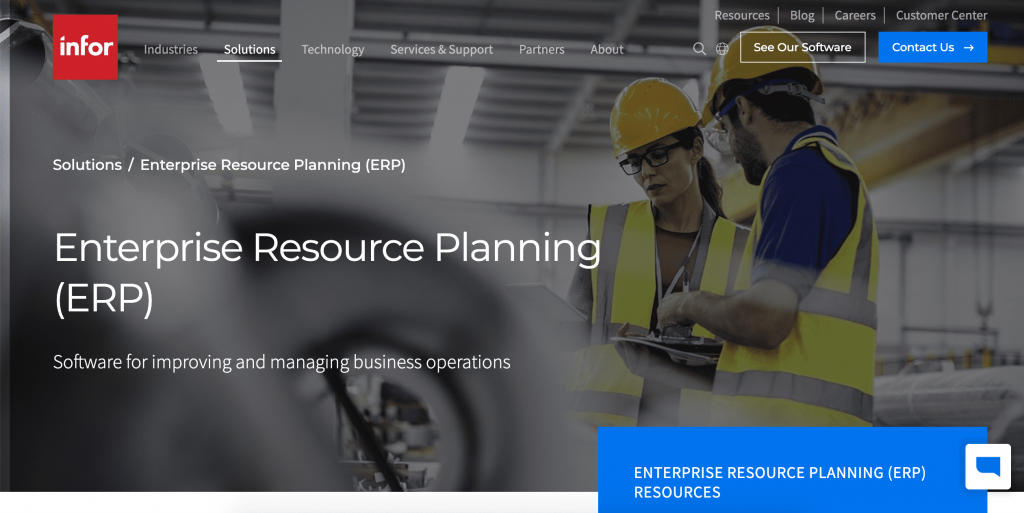
6. True ERP
True ERP possesses itself as a leader in business management software. The company offers both individual services for logistics or other elements of the business or the entire set of functions.

7. NetSuite ERP
NetSuite ERP is the service that offers businesses to focus on what they do best and how they react to the changes in the market. With integration features, NetSuite ERP enables the customers to control their business well.
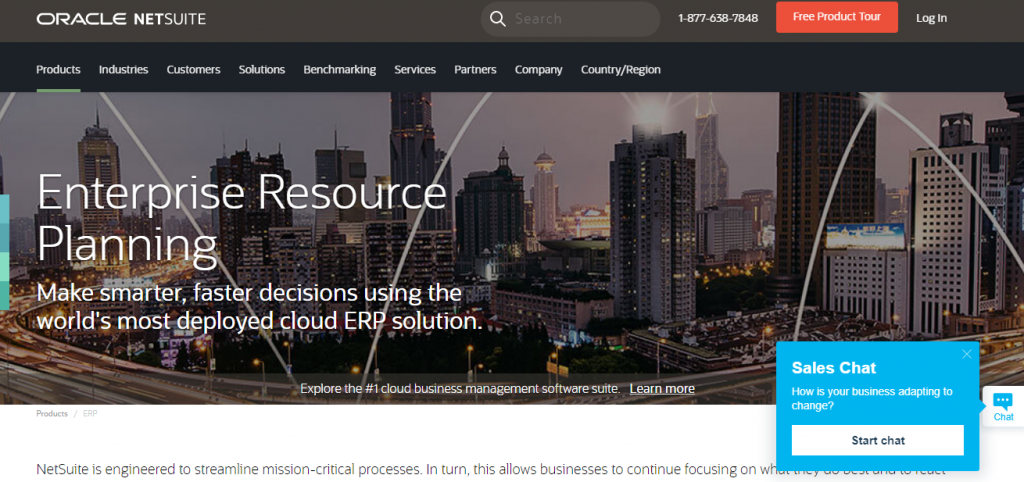
Conclusion
We at SOFTLOFT offer the Magento ERP integration to simplify and facilitate the integration of business processes in a single channel. The one move of the Magento ERP integration enables business owners to gather all data in one place and to manage the logistics and inventory better, thus earning more revenues on a regular basis. Just contact us for a quote.
